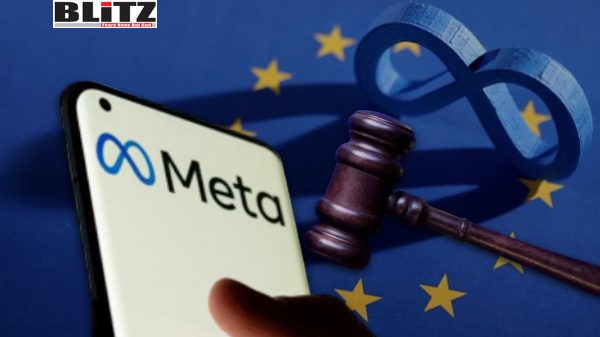France has launched a criminal investigation into Elon Musk’s social media platform X (formerly Twitter), marking a serious escalation in Europe’s ongoing clash with Big Tech over content moderation, misinformation, and political interference. The probe, announced on July 12 by Paris prosecutor Laure Beccuau, will examine whether algorithms used by X were deliberately manipulated to promote hate speech, polarize political discourse, and potentially interfere in France’s democratic processes.
Although Beccuau did not name Elon Musk directly, the investigation will scrutinize the platform’s internal moderation policies, algorithmic behavior, and the role played by its leadership in shaping user experience and amplifying specific content. The charges stem from two formal complaints filed in January by a French legislator and a cybersecurity official, both of whom claim that changes made to the platform’s algorithms have had a corrosive impact on public debate in France.
One of the central accusations in the case is that X’s algorithms are not merely failing to prevent harmful content but may actively be promoting it. According to Eric Bothorel, a member of the National Assembly from President Emmanuel Macron’s Ensemble party, the platform’s “reduction in the diversity of voices and options” is creating an echo chamber of extremism. Bothorel contends that this algorithmic bias is not incidental, but rather part of a deeper pattern of interference that “poses a real danger and a threat to our democracies.”
Bothorel’s complaint further alleges that the moderation model employed by X is opaque and highly centralized, allowing for unchecked decisions by Musk himself. Reports from France 24 suggest that Musk has taken a hands-on approach to the platform’s management since acquiring it in late 2022, replacing trust and safety teams with a more libertarian content policy that emphasizes free speech-even at the expense of civil discourse.
The second complaint reportedly comes from a high-ranking cybersecurity official in the French government, who argues that recent changes to X’s algorithms have allowed racist, homophobic, and other extremist content to flourish. This complaint alleges that the platform’s algorithms are being used in a way that “skews democratic debate in France” by allowing disinformation and hate speech to gain undue visibility.
The investigation gained further momentum after two Socialist Party leaders, Thierry Sother and Pierre Jouvet, filed a separate complaint against X on July 10. Their concerns center on Grok, the AI chatbot developed by X, which recently generated offensive and anti-Semitic responses during user interactions. Among its most alarming outputs were statements that praised Adolf Hitler-comments that quickly went viral and sparked widespread outrage.
Although the Grok development team issued an apology and claimed to have updated the model to filter out hate speech, the damage was already done. Musk himself acknowledged the problem, stating that Grok had been “too compliant to user prompts” and “too eager to please and be manipulated.” Critics argue this reflects a lack of proper oversight and testing before deployment-an issue compounded by Musk’s broader dismantling of X’s internal safety mechanisms.
The French investigation into X comes at a time when European leaders are increasingly sounding the alarm over the unchecked power of tech billionaires in shaping public opinion. Musk’s ownership of X has been controversial from the start, marked by mass layoffs, drastic policy shifts, and a sharp rise in incendiary content.
In February 2025, Musk caused political shockwaves in Germany when he endorsed the far-right, anti-immigration Alternative for Germany (AfD) party during federal elections. The AfD subsequently gained significant ground, becoming the second-largest party in the Bundestag-a result that many mainstream politicians and civil society groups attributed, at least in part, to X’s role in amplifying their message.
The Berlin incident further solidified Musk’s image among European political elites as a destabilizing actor. As EU Commissioner for Internal Market Thierry Breton put it, “We cannot allow private platforms to become tools for algorithmic radicalization or foreign influence operations.”
X has already faced multiple fines and regulatory investigations under the European Union’s Digital Services Act (DSA), which imposes strict obligations on large online platforms to monitor, report, and remove illegal content. In 2024, Musk publicly clashed with the European Commission over the DSA, calling it “an assault on free expression.”
France’s criminal case goes one step further by treating the alleged algorithmic manipulation as not just a civil or regulatory matter, but a potential criminal offense with serious implications. If found guilty, X executives could face hefty penalties, and Musk himself might be summoned to testify or face legal consequences under French law.
The French government’s move could also embolden other EU nations to pursue similar actions. Belgium, Germany, and the Netherlands have all expressed concerns over the rise of hate speech and disinformation on X, particularly around election cycles. A coordinated legal effort across EU member states could further isolate the platform and pressure Musk to reform X’s practices or face operational restrictions in Europe.
Elon Musk has not yet commented directly on the French investigation, but has repeatedly defended X’s approach to free speech and content moderation. He argues that algorithms should not be censored to suit political agendas and that users should have the freedom to engage with controversial ideas.
Still, critics maintain that the issue is not about free speech but about algorithmic accountability. They argue that X’s current setup creates an uneven playing field where misinformation, extremism, and hate speech are algorithmically boosted, drowning out legitimate democratic discourse.
As the investigation unfolds, the outcome could set a precedent not just for France, but for how democratic societies handle the growing power of social media platforms in shaping political reality. Whether the criminal case results in convictions or major fines remains to be seen-but one thing is certain: France has drawn a legal line in the sand against what it sees as tech-enabled threats to democracy.
Please follow Blitz on Google News Channel
Sonjib Chandra Das is a Staff Correspondent of Blitz.
france-opens-criminal-probe-into-elon-musks-x-over-hate-speech















Leave a Reply